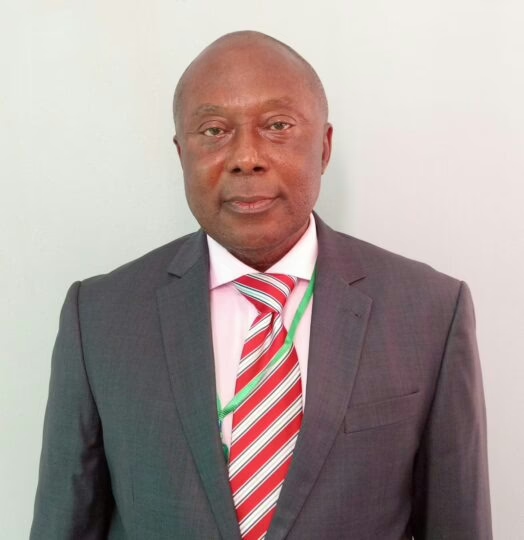Court locks up foreigners who hired Nigerians for internet fraud
Published By: Michael Adesina
Michael Adesina
Justice D.I. Dipeolu of the Federal High Court sitting in Ikoyi, Lagos, has ordered the detention of eleven Chinese and one Filipino at the Ikoyi prison and Kirikiri Correctional Centre over their alleged involvement in internet fraud.
The judge gave the order after the suspects were arraigned by the Lagos Zonal Directorate of the Economic and Financial Crimes Commission, EFCC, on Friday, January 31, 2025.
The defendants are: Wang Zheng Ming, Li Yin Hui, Xian Hong Will, Zhang Xiao Lei, Long Zhao Ming, Guo Xiao Fei, Yang Sheng, Wang Zheng Feng, Chen Wenyuan, Liu San Hua, Luo Jia You and Rheign Dela Vega.
They are members of the syndicate of 792 alleged cryptocurrency investment and romance fraud suspects arrested on December 10, 2024 in Lagos during a surprise operation tagged “Eagle Flush Operation” by operatives of the EFCC.
The suspects were arraigned on separate charges bordering on alleged cybercrimes, cyber-terrorism, possession of documents containing false pretence and identity theft, among others.
One of the counts reads: “That you, LI YIN HUI and GENTING INTERNATIONAL CO. LIMITED, on or about the 18th of December 2024 in Lagos, within the jurisdiction of this Honorable Court, willfully caused to be accessed computer systems organised to seriously destabilise the constitutional structure of Nigeria (which prohibits and prevents cyber and related crimes) when you procured/employed Nigerian youths for identity theft and to hold themselves out as persons of foreign nationality, with the intent to gain financial advantage for yourselves and you thereby committed an offence contrary to and punishable under Section 18 and 27 of the Cybercrimes (Prohibition, Prevention, Etc) Act, 2015 (As Amended, 2024).”
Another count reads: “That you, LUO JIA YOU (AKA A. YOU) sometime in December 2024 at Lagos, Nigeria, within the jurisdiction of this Honourable Court, willfully gave false information to officers of the Economic and Financial Crimes Commission in the course of investigation when you were being questioned for being part of a criminal syndicate group, specialized in Romance scam, crypto currency fraud, cyber terrorism amongst others; and in order to mislead them, you falsely represented your name as A. YOU and you thereby committed an offence contrary to Section 39(2) of the Economic and Financial Crimes Commission (Establishment) Act, 2004 and punishable under Section 39(2) (b) of the same Act.”
Another charge reads: “That you, LONG SHAO MING A.K.A LING YANG, sometime in December 2024 in Lagos , within the jurisdiction of this Honorable Court, with intent to defraud, had in your possession documents containing false pretence, wherein you held yourself out as ‘Linda Maureen’, a citizen of the United States of America, which document you knew to be false and you thereby committed an offence contrary to Section 6 and punishable under 1(3) of the Advance Fee Fraud and Other fraud related Offences Act, 2006. “
They each pleaded “not guilty” to the offences when they were read to them.
In view of their pleas, prosecution counsel, L.P. Aso, M. K.Bashir, T. J .Banjo, N. K . Ukoha and B. Buhari-Bala, prayed the court for trial dates and for the defendants to be remanded in the appropriate Correctional facilities.
Justice Dipeolu adjourned the matter till 7, 14 and 21 February, 2025 for trial and issued the order to remand them.
Back story
Operatives of the EFCC on December 10, 2024, stormed an imposing seven-storey edifice known as Big Leaf Building, on No.7, Oyin Jolayemi Street, Victoria Island, Lagos, following verifiable intelligence received by the Commission.
- Court jails six for internet fraud in Ilorin
- Olukoyede to students: Shun corruption to safeguard your future
- EFCC arrests 13 suspected internet fraudsters in Sokoto
During the raid, the operatives arrested 792 suspects for their alleged involvement in cryptocurrency investment fraud and romance scam.
Those arrested included 148 Chinese, 40 Filipinos, two Kharzartans, one Pakistani, and one Indonesian.
Giving explanation on the raid, EFCC’s media spokesman Wilson Uwujaren revealed that the foreign nationals used the facility, which could be mistaken for a corporate headquarters of a financial establishment, to train their Nigerian accomplices on how to initiate romance and investment scams and also used the identities of their Nigerian accomplices to perpetrate their criminal activities.
According to him, “All the floors are equipped with high-end desktop computers. On the 5th floor alone, investigators recovered 500 SIM cards of local telcos that were bought for criminal purposes.
“Their Nigerian accomplices were recruited by the foreign kingpins to prospect for victims online through phishing, targeting mostly Americans, Canadians, Mexicans, and several others from European countries.
“They usually arm them with desktop computers and mobile devices and create fake profiles for them.
“The Nigerian accomplices are equally provided with logs that allow them access to foreign communication lines and victims, which they chat with on WhatsApp, Instagram and Telegram.”
Wilson added that the Nigerian accomplices who are assigned WhatsApp accounts linked to foreign telephone numbers, especially from Germany and Italy, engage victims in romantic conversations as well as phantom business and investment discussions to trick them to shop on the purported online investment shopping platform called yooto.com.
He added: “For those who show interest, activation fees for an account on the platform starts from $35USD.
“Investigation revealed that the criterion for recruiting these young Nigerians is proficiency in the use of computers, especially typing skill. Those who passed the test are given desktop computers and mobile devices and then taken through a two-week induction on how to personate foreign females in romance scam chats and convince victims to invest in their employers’ cryptocurrency investment scam.
“Once the Nigerians are able to win the confidence of would-be victims, the foreigners would take over the actual task of defrauding the victims and proceed to block their Nigerian accomplices from the network. This would then leave them in the dark about the transaction.”
He, however, said the Nigerians involved in the alleged fraudulent activities “do not know the owners of the ‘company’ they work for because they are not offered letters of appointments or receive payment from a corporate account.”
According to him, the suspected Nigerian accomplices are usually paid either in cash or through an individual’s account.
Wilson noted that the Commission was working with its foregoing partners to establish the extent of the scam and the accomplices as well as the likelihood of any collaboration with organized international fraud cells.











